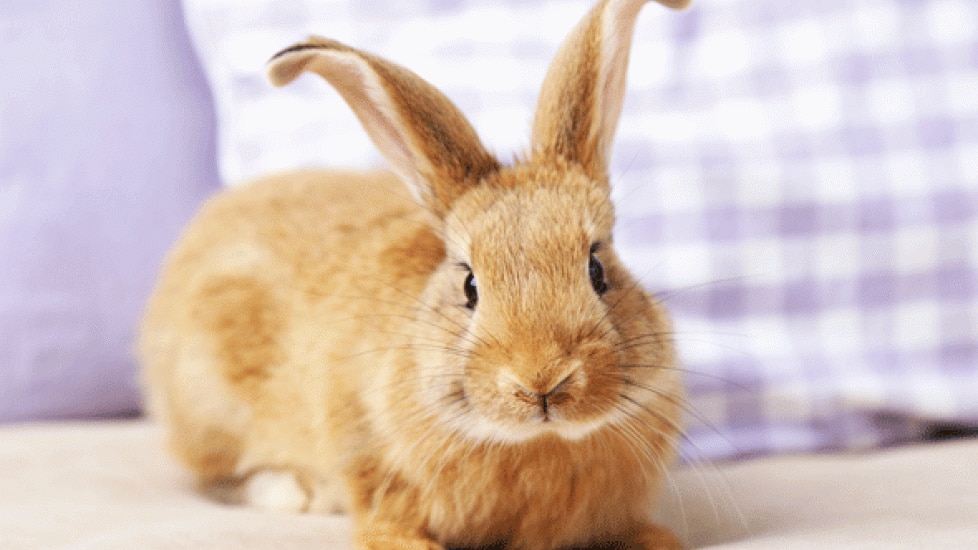Destructive Behavior in Rabbits
By Cheryl Lock
Rabbits can be delightful animals to have as pets, but it’s important to understand the difference between normal naughty bunny behavior and behavior that’s veered into dangerous and destructive territory.
What would be considered ‘normal’ destructive behavior for rabbits?
Rabbits are, by nature, bound to exhibit some behaviors that are, for lack of a better word, destructive — it’s understanding which behaviors are hazardous for your bunny or yourself that’s important.
Chewing and urinating on things are normal behaviors for rabbits. However, in captivity, rabbits often chew inappropriate objects. Dana Krempels, Ph.D., from the University of Miami Department of Biology, explains that the following would all be considered normal rabbit behavior that manifests inappropriately when they are kept as pets:
- Digging on the carpet or other floor surfaces (this will likely mimic the digging behavior that rabbits exhibit out in the wild)
- Chewing on baseboards or corners of walls
- Chewing on cords that are in a travel or digging path
- Urinating in corners not designated by a litterbox
How can I tell if my rabbit is actually being destructive?
It’s often a matter of context when it comes to determining your rabbit’s behavior, says Dr. Krempels. “Sometimes a rabbit will learn that a ‘normal’ behavior elicits a negative reaction — and remember, negative attention is still attention — from the caregiver, and so will use it to get attention,” she said. “Another behavior many caregivers find objectionable is urine spraying, but in most cases this is just the rabbit’s way of saying, ‘I love you! You’re mine!’” However, she added, “it can also mean, depending on context, ‘you are the subordinate, and I anoint you with my majestic pee to prove my point.’”
In other words, if your rabbit decides to exhibit his objectionable behaviors after a particularly rough time — perhaps you recently moved, have been trying to litter train your rabbit, got a new pet, or got married, and your partner is now around more — your rabbit could be performing these behaviors as an objection, or a way of lashing out.
What issues might lead to destructive behaviors?
A leading cause of destructive behavior in rabbits is boredom. A bored bunny is one who will explore options, says Dr. Krempels. “Providing lots of enrichment to promote natural behaviors — like clean cardboard boxes with two door holes cut in the sides to chew on and run through, parrot-safe chew toys or jingly toys, paper towel tubes stuffed with hay or other treats, etc. — will help curb destructive urges brought on by boredom.”
Aside from boredom, health issues could also trigger certain bad behaviors. “For example,” said Krempels, “a bunny who is suddenly losing litterbox habits could be suffering from a urinary tract disorder — like an infection, bladder sludge, or bladder stones — or arthritis, which makes it painful to jump into the box.” If you suspect this is the case with your own rabbit, bring her to the vet for further testing.
How can I tell if lack of training is the problem, or if it’s a stress-related issue?
Unfortunately, this is likely going to be tough to decipher, says Dr. Krempels. “I’ve never seen a rabbit engage in destructive behaviors that were not also normal behaviors under different circumstances,” she said. “So, the important thing is to recognize the context of the behavior.”
If you believe your bunny is lashing out with destructive behavior, take a second to consider her current scenario. Has something changed in the house or in the rabbit’s environment that might be causing stress? If so, that might be the cause of the problem.
How can I help my rabbit to avoid destructive behaviors brought on by stress?
Aside from removing whatever stressor you believe is bothering your pet (hard to do if it’s a person or a new place home), Dr. Krempels does have a few other suggestions. “I’ve found that the simple act of letting a single rabbit choose a spayed/neutered partner can go a long way to stopping destructive behaviors elicited by boredom,” said Dr. Krempels. “In my experience, paired bunnies are happier, healthier, and less destructive.”
If you will be introducing a new pet into your home — whether it’s another rabbit or a different animal, altogether — Dr. Krempels suggests following the introduction guidelines set forth by the House Rabbit Society and always providing a safe haven for your rabbit to be alone whenever he wants quiet time away from his new friend.
Keep in mind that it’s not always possible to “train” a rabbit not to engage in destructive behaviors, either. “Rather than training a rabbit not to engage in natural “destructive” behaviors, the caregiver should provide an outlet for those natural behaviors that doesn’t tear down the house.”
This includes things like:
- Supervised out-of-cage time
- A litterbox with pelleted paper-based litter covered with soft hay in corners where your rabbit has decided to urinate
- Lots of safe playthings for your rabbit to chew on
- Protective covers on all wires and cords
- Tacking untreated/unfinished pine molding to baseboards and wall corners where your rabbit has shown an interest in chewing
Paying attention to your rabbit’s surroundings and daily activities and taking just a little bit of time to “rabbit proof” your home from regular bunny behaviors can go a long way toward helping both you and your bunny have a happier life together.
This article was verified and edited for accuracy by Dr. Laurie Hess, DVM, Dipl ABVP
